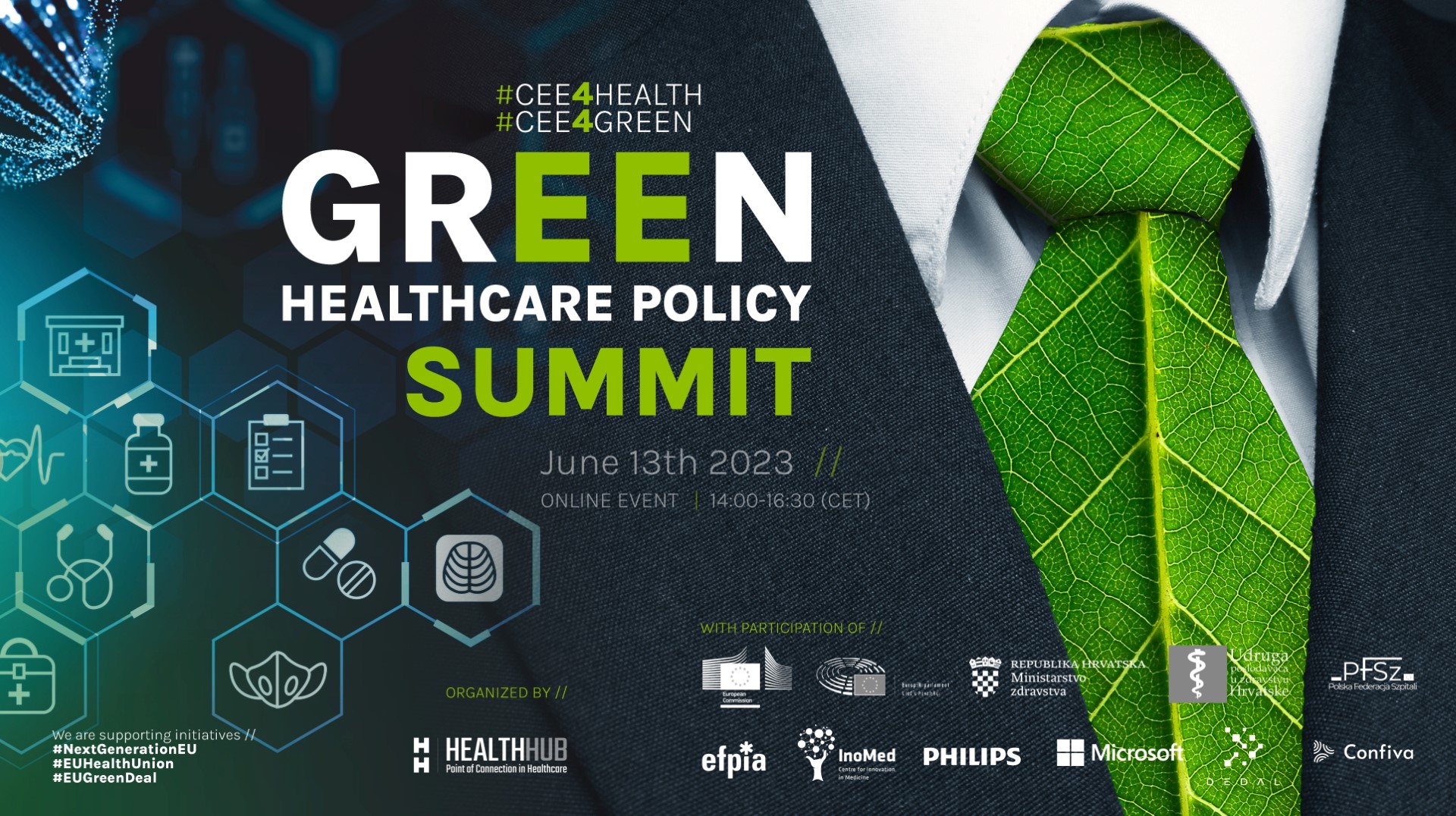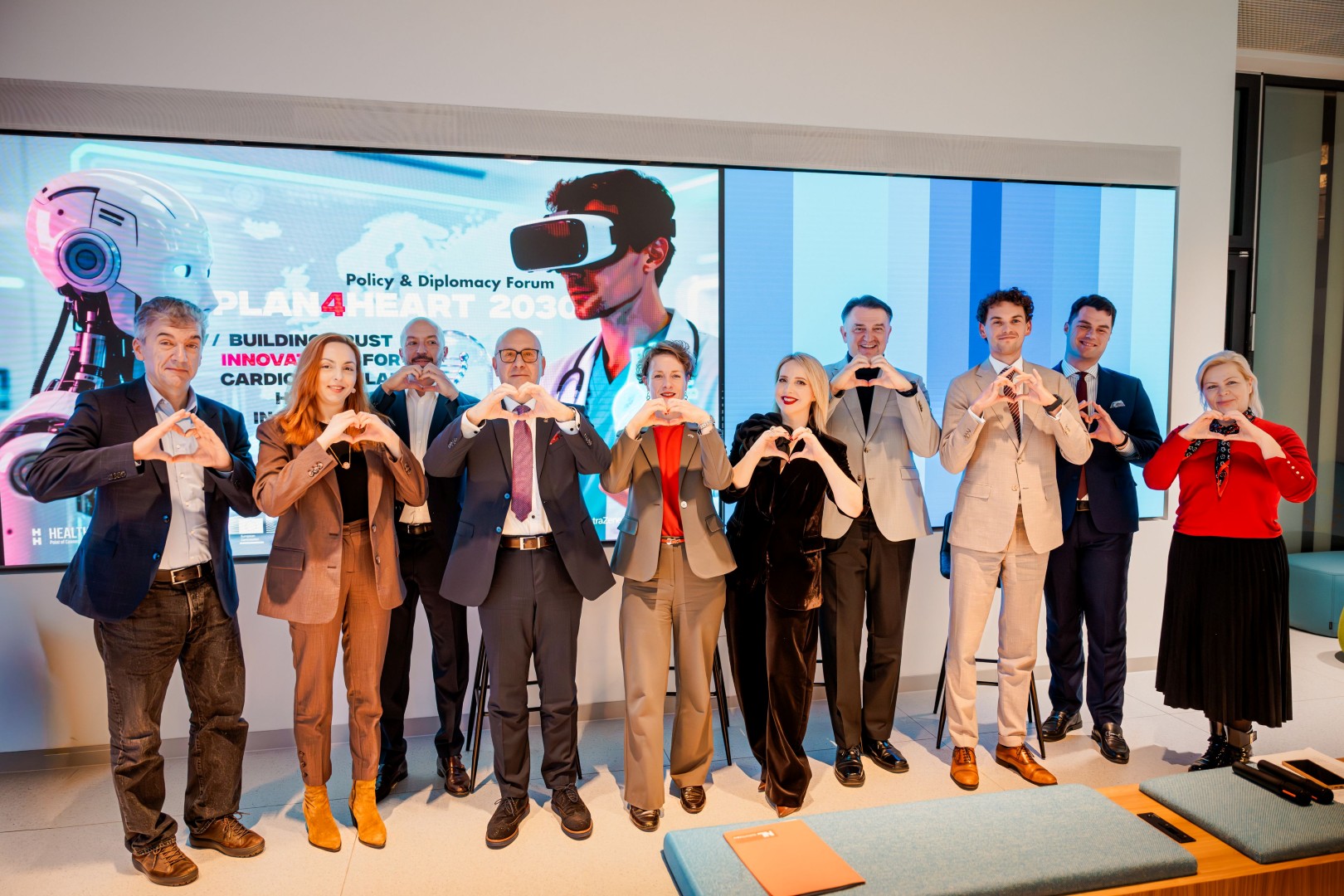Miroslav Šaban (Philips): “Green procurement is one of the critical strategies for advanced and sustainable healthcare systems”
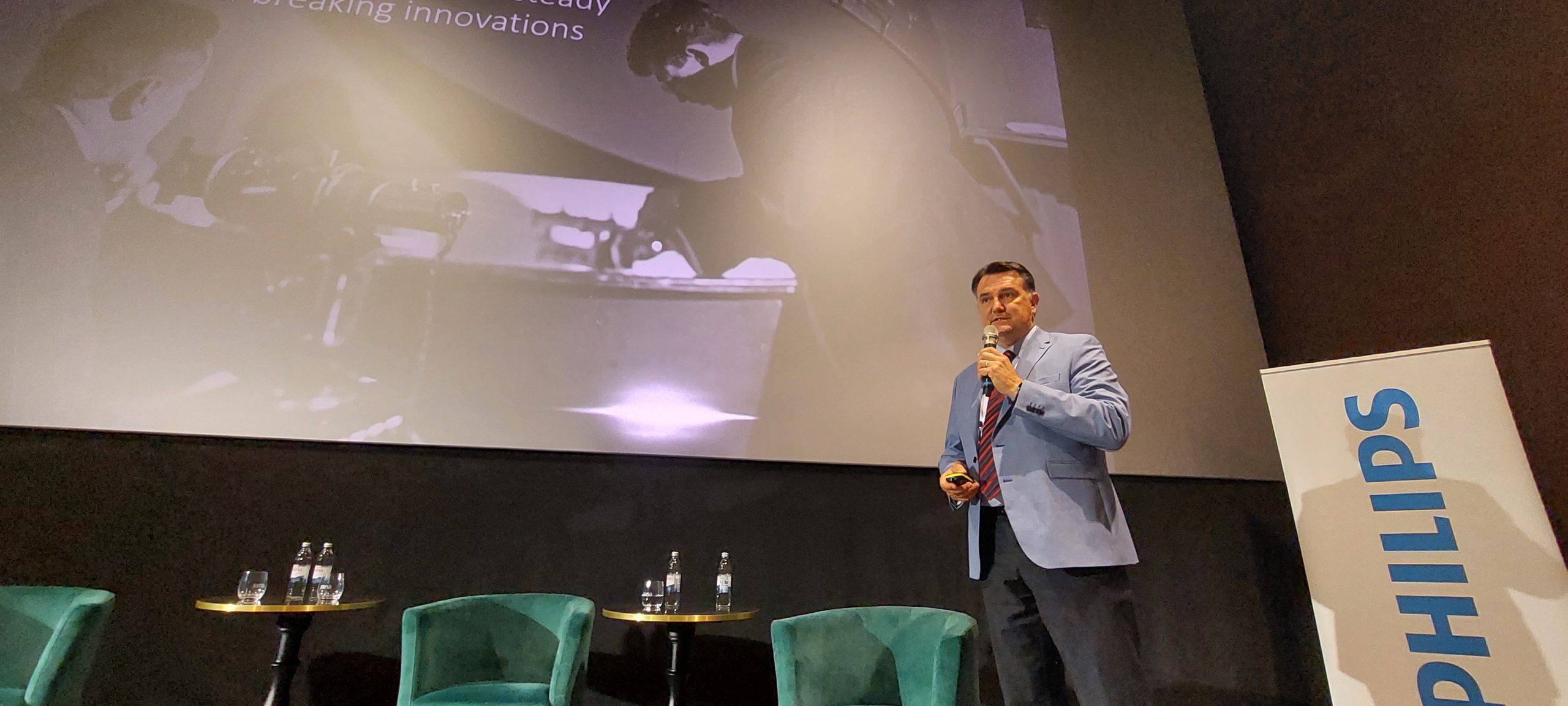
Miroslav Šaban (Head of Government and Public Affairs, Zone Central & Eastern Europe, Philips Europe Region
The aim or the goal from us, as a medtech company is to align innovation with green mindset. If you look our history and tradition, it is more than 130 years old, and we have beem improving people’s lvies with a steady flow od groundbreaking innovations. It all started in beautiful area of Netherlands, with dedicated and commited people to make things changing in a world of innovations.
Innovations are a core part of the green transformation and the essence of moving us ahead. I am proud that those innovations are also transforming us as a company in period of 130 years, which is quite important – to transforming ourselves as a medtech company in ever changing world. Our company reinvented itself many times; it was fouded on innovation and entrepreneurship, expanding itself beyond lighting, globally expanded in post WWII, it became diversified industrial conglomerate and today strategic portfolio choices are sharpening our focus. Our journey continues…
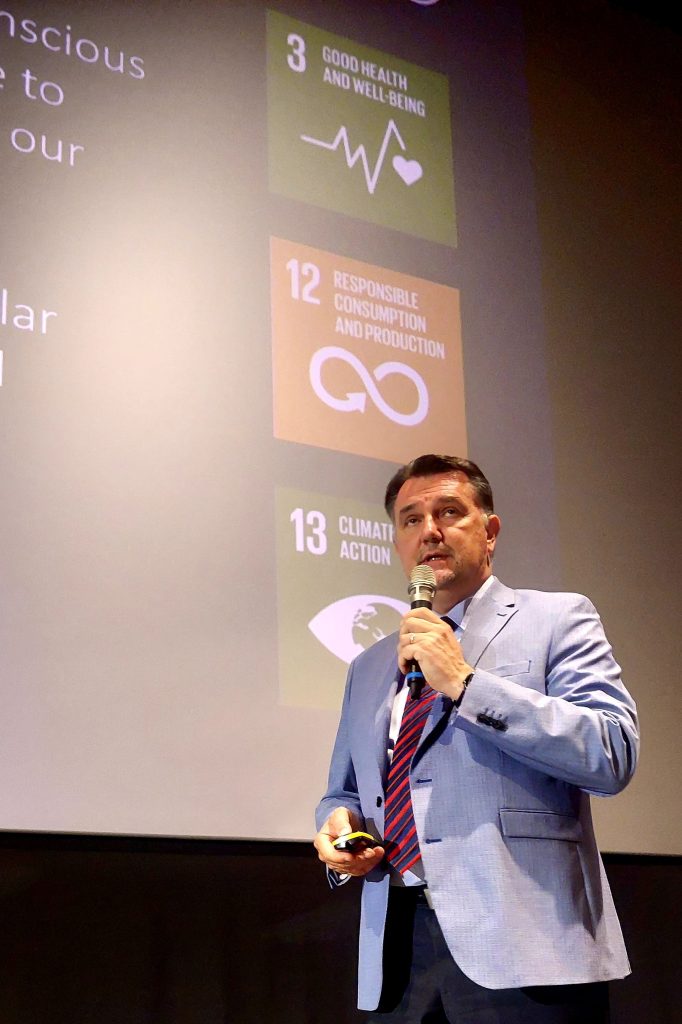
Healthcare has such a strong impact on our global economy and human health, so we are focused on innovations in health. Products come and go and technologies change, but we are still dedicated to one thing- creating meaningful innovation that improves people’s lives.
Nowadays we have a couple of challenges ahead of us and we are really proud our company is developing solutions that are really helping to solve those challenges, curing faster and helping much better to people, recovery and treatment outcomes.
There is more and more people aware of their health. People are seeking and looking for informations much earlier. It is our purpose to improve people’s health and wellbeing throughout meaningful innovation. We aim to improve the lives of 2,5 billion people per year by 2030.
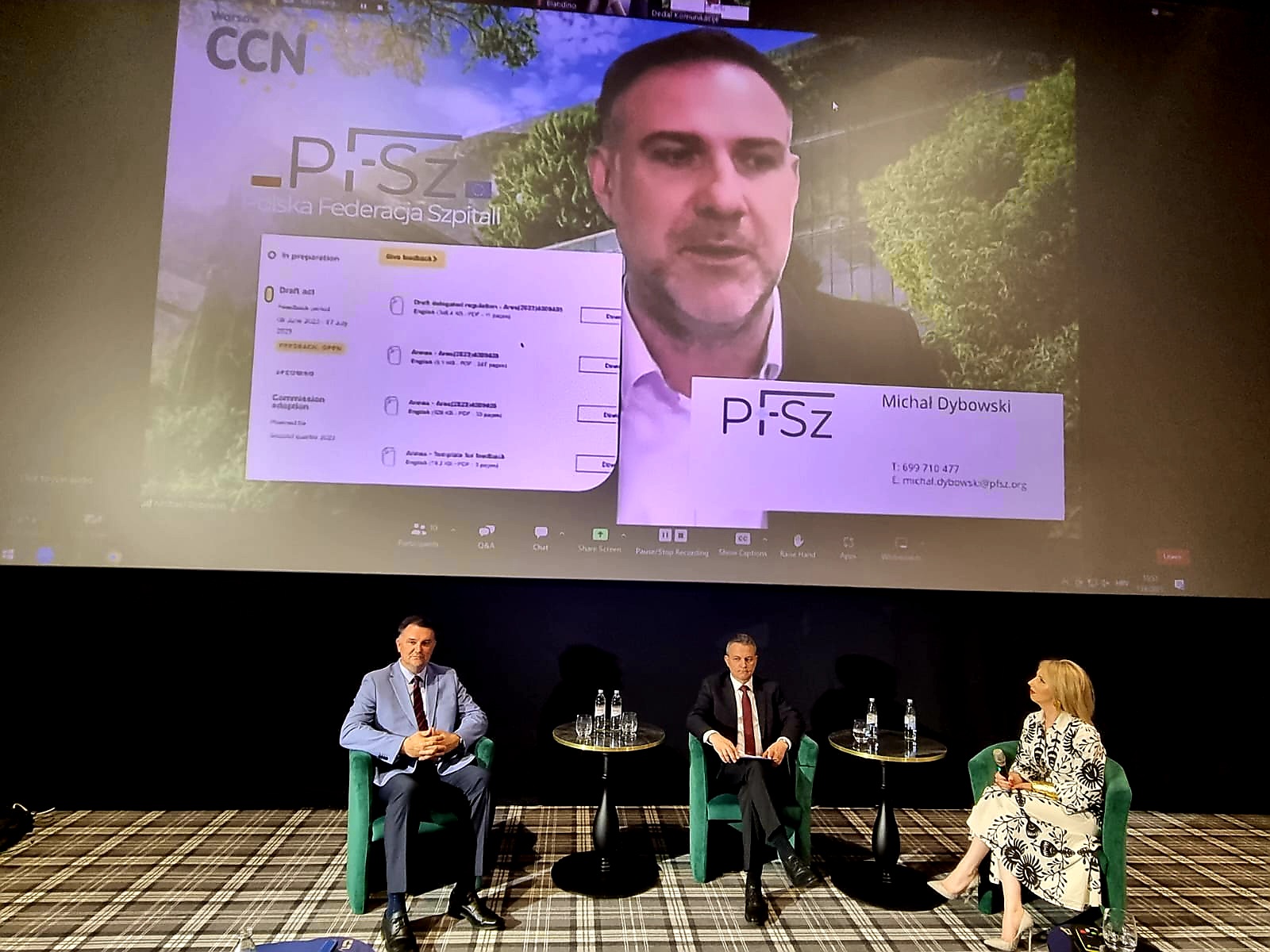
Miroslav Šaban (Head of Government and Public Affairs, Zone Central & Eastern Europe, Philips Europe Region during panel session of Green Healthcare Policy Summit, with Nikša Antica and Anita Galić
How do we do it sustainable?
We will be the best place to work for people who share our passion, promoting personal development, inclusion and diversity. Together we will deliver superior, long-term value to our customers and shareholders, while acting responsibly towards our planet and society, in partnebrship with our stakeholders. As a purpose-driven health technology company, we are very conscious of our responsibility towards society and of the need to continue to embed sustainability ever deeper in the way we do business – in our own operations and beyond, together with our partners. Driving global change, with specific focus on access to care, circular economy and climate action. When it comes to making the world healthier and more sustainable, there is simply no time to lose.

In January 2016, the 17 Sustainable Development Goals (SDGs) of the 2030 Agenda for Sustainable Development were launched and adopted by world leaders.
We have made a commitment to contribute to these goals by focusing on the areas where we can make most impact:
- SDG 3: Ensure healthy lives and promote well-being for all at all ages
- SDG 12: Ensure sustainable consumption and production patterns
- SDG 13: Take urgent action to combat climate change and its impacts
Our Lives Improved target is aligned with the United Nations’ SDGs timeline. We believe that by actively supporting the UN SDGs and aligning our own targets to theirs, we can make more impact and reach even more people. In addition, we have committed to extend our commitment to improve access to care in underserved communities to 400 million by 2030, with our target to improve the lives of 300 million people by 2025.
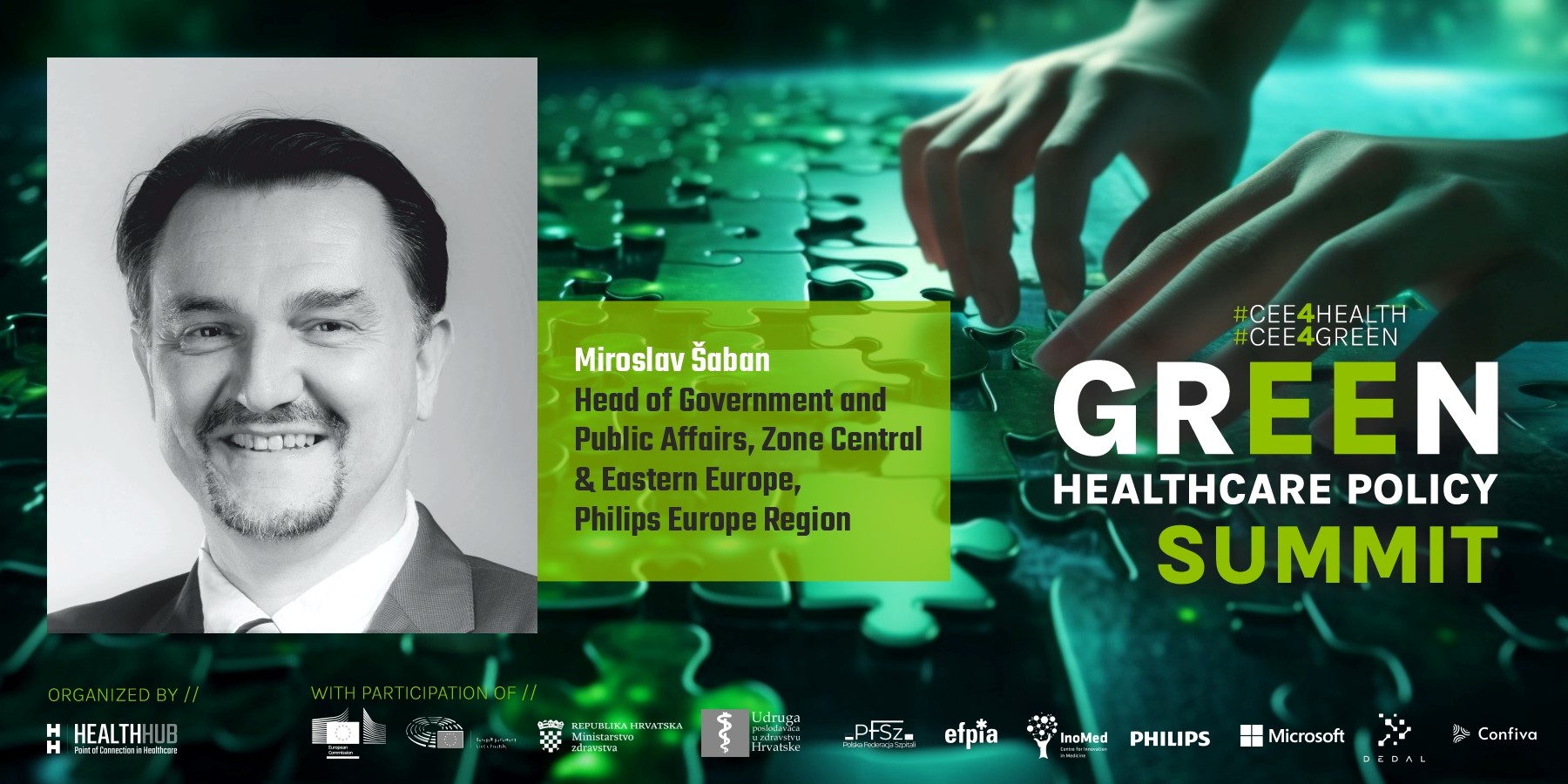
Philips is a recognized leader in environmental sustainability
As Futur Health Index 2022 states, with the healthcare industry being one of the most carbon intensive industries, leaders have long faced calls to adopt more sustainable practices. The supply chain is one of the most important areas on which to focus. Other common initiatives include increased use of renewable energy, expanding the circularity of products and materials, efficient construction practices, and replacing harmful chemicals with safer alternatives. Organizations such as Health Care Without Harm are leading the growing demand for sustainability with a range of initiatives,including tools for facilities to control their waste management and education programs on the health impacts of climate change.
In December 2022, Philips achieved CDP ‘A List’ rating for the 10th consecutive year for its leadership in corporate transparency and performance on climate change and water security by global environmental non-profit CDP. CDP’s annual environmental disclosure and scoring process is widely recognized as the gold standard of corporate environmental transparency.
In 2022, Philips was honored in the Fast Company 2022 ‘Brands That Matter’ list based on, among other things, its action on climate change, its upholding of human rights, and its Environmental, Social & Governance (ESG) performance.
In November 2021, Philips won the Kristalprijs, a transparency benchmark by the Dutch Ministry of Economic Affairs, in particular for its reporting on climate risks.
In August 2019, Philips topped the inaugural Fortune Sustainability All Stars list, in front of companies such as IBM, Intel, Walmart and Apple. The list recognizes companies based on their environmental innovation, resource use, and efforts to limit emissions.

Green Public Procurement
To enable the healthcare industry to make a meaningful contribution to the 2015 Paris Agreement and 2050 net-zero targets, we call on governments, purchasing agencies and group procurement organizations to improve supplier evaluation criteria for Green Public Procurement across the five themes
- Greenhouse gas emissions reduction
Ensure that suppliers report their environmental impact (including emissions) and that they have a greenhouse gas emission (GHG) reduction plan in place
- Circularity
Focus on circularity for health technology products and solutions
- Eco-design transparency
Require supplier transparency on product performance and eco-design for products and equipment resources and workflow efficiency
- Digitalization to improve decarbonization and dematerialization
Require suppliers to demonstrate how digital offerings support decarbonization and dematerialization by optimizing resources and workflow efficiency
- Social impact
Require suppliers to publicly report their social impact

Future Health Index 2022
In 2022, the Future Health Index focuses on how data and advanced analytics are giving healthcare providers new tools which enhance their ability to deliver care to all sectors of their communities, both in and out of a traditional hospital setting. Report collected responses from almost 3000 healthcare leaders across 15 countries.
As Future Health Index highlights, a sharp focus on social responsibility has had a positive effect in promoting greener healthcare systems. However, for some, the change has not been fast enough, with our latest research revealing that many leaders are now accelerating their sustainability plans, in line with the evolving expectations of patients.
The Future Health Index 2021 report found that just 4% of healthcare leaders saw implementing sustainability practices as a priority, although many (58%) agreed it would become a priority by 2024. Today, the picture is very different. 2022 findings suggest that healthcare leaders have fast-tracked their sustainability plans. Almost one-quarter (24%) are prioritizing sustainability, and the same number plan to do so three years from now. This shift may be explained by both the public commitment of 50 countries to develop climate-resilient and low-carbon health systems as part of the COP26 Health Programme* in late 2021, and a resetting of expectations as leaders embark upon implementing their sustainability plans. Healthcare leaders in urban facilities are more likely than their peers in rural facilities to prioritize sustainability (26% vs 19%), demonstrating the role of patients and healthcare workers in driving sustainability. In urban areas where there is a wider choice of facilities, healthcare leaders are more likely to feel pressure to meet patient demands for sustainable practices in order to attract and keep patients. Equally, sustainability is increasingly playing a key part in recruiting talent in areas where there is significant competition. However, while leaders in rural facilities are currently behind those in urban facilities in prioritizing sustainability, they are set to surpass them in terms of the issue three years from now (29% vs 25%).
There are also differences in attitudes towards sustainability between operational and clinical healthcare leaders.
Clinical leaders are less likely to prioritize sustainability than their operational colleagues today and this difference is even greater in the future. However, they can also have an impact on emissions reductions, for example by prescribing medications that are manufactured with a lower carbon footprint or advocating for equipment that has zero landfill at the end of its life. For hospitals and healthcare facilities to achieve their sustainability goals, both clinical and operational leaders must play an equal part in carbon reduction

Sustainable, “green” procurement as one of the critical strategies for advanced healthcare
At Philips, we consider sustainable procurement one of the critical strategies that providers and governments can adopt to advance and decarbonize healthcare!
These were five key areas where health technology purchasers in Europe can integrate green criteria in the procurement process – to stimulate innovations and advancements in healthcare, increase value for money, and reduce the pressure that health systems place on the global environment.
By sharing Philips’ perspective, we wish to support dialogue between all stakeholders, and we welcome deeper engagement on sustainable procurement and green hospital initiatives.
It is our strongly held view that by fostering collaboration between customers, suppliers and industry peers, the
healthcare sector can support and enable the transformation to a low-carbon economy and build more productive and resilient delivery of healthcare services.


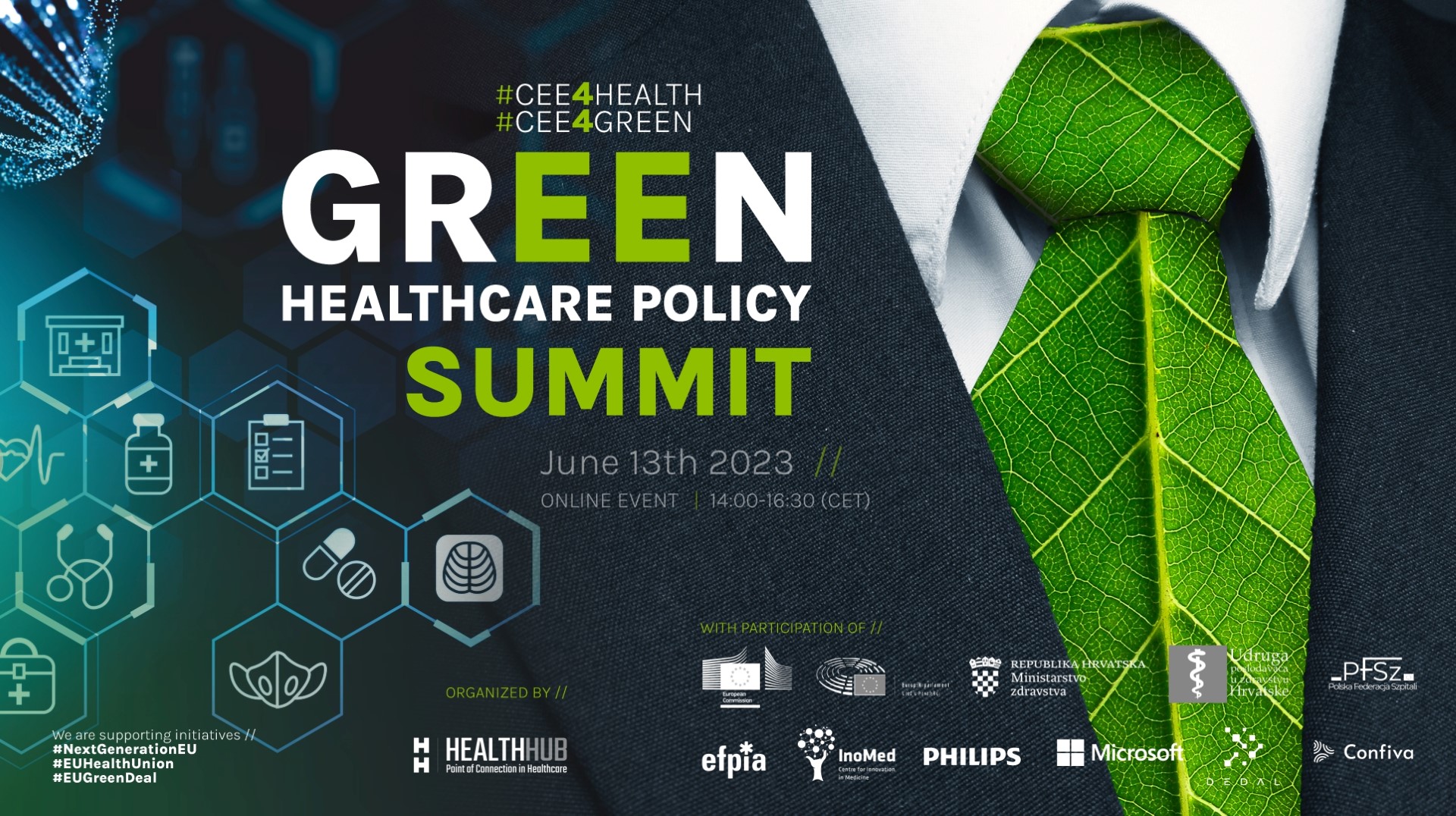
REFERENCE:
https://www.philips.com/a-w/about/news/future-health-index/reports/2022/healthcare-hits-reset.html


